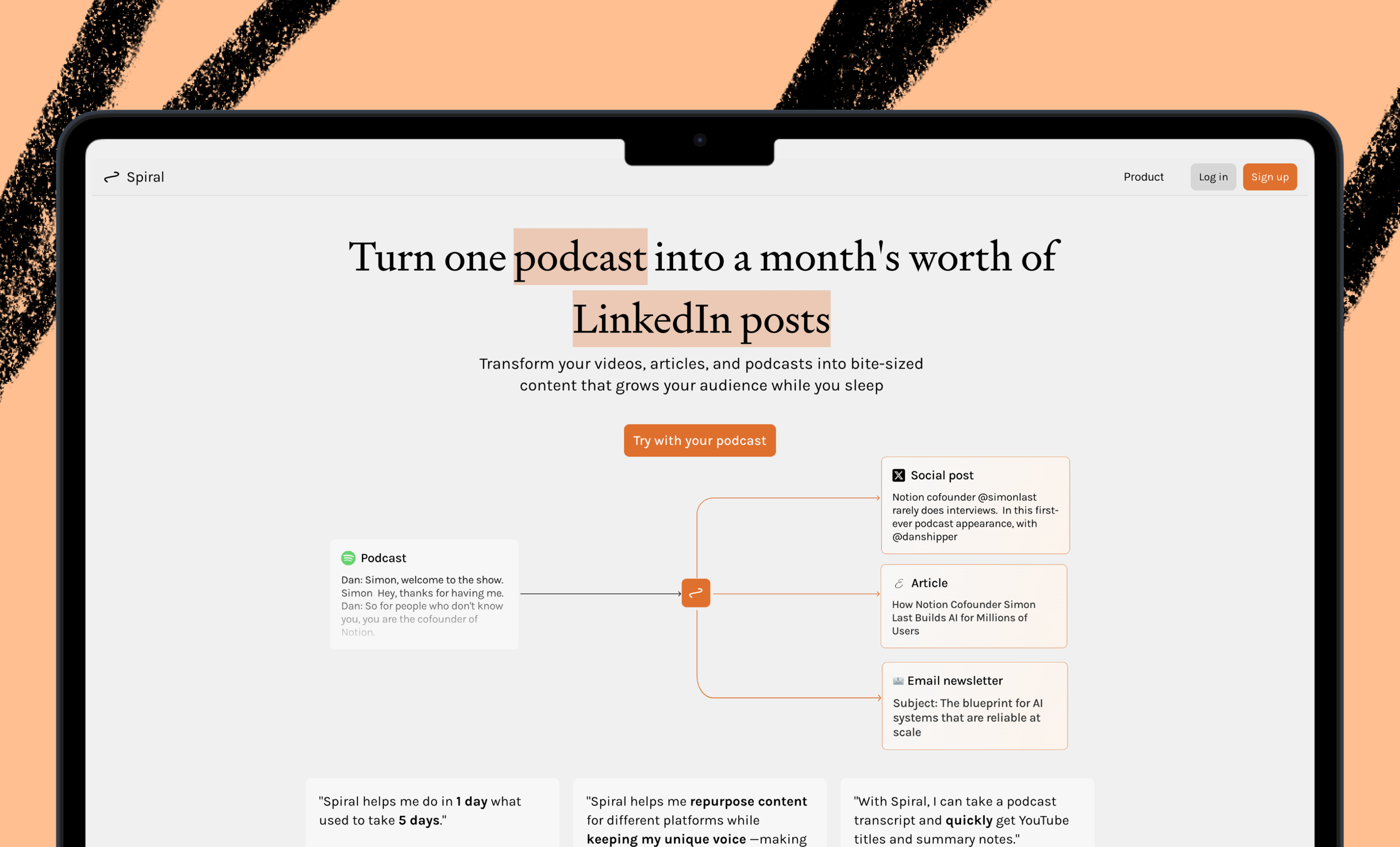
Whether you do it consciously or not, you are constantly putting stuff into the world that others notice and respond to. Everything—chatting to a stranger in line for groceries, small talk at parties, conversations at work, what you broadcast on social media—attracts, repels, or is ignored by other people. Unless you are completely disconnected from the world, you can’t avoid this.
There’s a trap here, though. It’s all too easy to accidentally attract the wrong community because you learned to share an image of yourself that you think others will like. But if that image isn’t really who you are, you’ll probably feel alone and misunderstood, even if surrounded by people. They’re not your people.
The way out of the trap is to pay attention to your “felt” experience as you move through your life. Learn to notice moments when things feel wrong in some way. You may be fortunate and have a clear sense of “that was inauthentic,” but it may be as simple as “my stomach knotted when I said that.”
In other words, the first step to figuring out who you are is to stop being who you’re not. This is what I’m inviting you to do, and I’ll share a few helpful mindsets and approaches here that can make it much easier. This isn’t a how-to guide on how to make friends though: Consider it a kind of metaprotocol that you can apply to help bring the right kind of people into your life.
Pay attention to your felt experience
Let’s look at an archetypal childhood experience, a moment of expressing something authentic, heartfelt, and genuine but being laughed at for it. This experience—which happened to me a lot growing up—might teach you to avoid the pain of ridicule next time by actively trying to be different. You simulate what you think other people will like and then act like that.
This strategy may succeed, at least on the surface. If you’re good enough at reading the room and simulating others’ preferences, you can layer on behaviors that will help you fit in. This is actually an incredibly valuable social skill that is useful—some might even say necessary—to develop to a high level of proficiency, particularly if you often move between different social and professional circles that have different norms.
But you need to be cautious with it. While it’s useful, it becomes dangerous the moment you forget that you’re doing it—when the performance becomes your reality. You lose your sense of self.
To find your way back to it, focus on your inner sensations as you navigate life. Become aware of instances when something feels off. Look kindly and softly at the thing you’re doing that you don’t like and change nothing. Just pause, and then gently put it down without picking something else up in its place. I talked about this approach in more detail in my previous essay, “How to Make Unfixated Choices.”
This will feel strange at first because nature abhors a vacuum, and so will you. You’ll be itching to overwrite your behavior with another, different act. But if you can wait patiently, then the void will seem to fill itself with something that is you. From your perspective, viewed from the inside, what shows up will be spontaneous and surprising, yet somehow familiar. By ceasing all the things that aren’t you, you clear space for the real you to show up.
You’ll learn what you would say if you were less afraid of judgment. You’ll see what aspects of your personality would express themselves if you cared less about the opinions of others. Over time, you may get comfortable with actively repelling the “anti-others,” the potential haters, energy-sinks, and troublemakers. This is a good thing! If you’ve ever been utterly put off by someone’s social media presence, consider that it may be by design.
Whether you do it consciously or not, you are constantly putting stuff into the world that others notice and respond to. Everything—chatting to a stranger in line for groceries, small talk at parties, conversations at work, what you broadcast on social media—attracts, repels, or is ignored by other people. Unless you are completely disconnected from the world, you can’t avoid this.
There’s a trap here, though. It’s all too easy to accidentally attract the wrong community because you learned to share an image of yourself that you think others will like. But if that image isn’t really who you are, you’ll probably feel alone and misunderstood, even if surrounded by people. They’re not your people.
The way out of the trap is to pay attention to your “felt” experience as you move through your life. Learn to notice moments when things feel wrong in some way. You may be fortunate and have a clear sense of “that was inauthentic,” but it may be as simple as “my stomach knotted when I said that.”
In other words, the first step to figuring out who you are is to stop being who you’re not. This is what I’m inviting you to do, and I’ll share a few helpful mindsets and approaches here that can make it much easier. This isn’t a how-to guide on how to make friends though: Consider it a kind of metaprotocol that you can apply to help bring the right kind of people into your life.
Pay attention to your felt experience
Let’s look at an archetypal childhood experience, a moment of expressing something authentic, heartfelt, and genuine but being laughed at for it. This experience—which happened to me a lot growing up—might teach you to avoid the pain of ridicule next time by actively trying to be different. You simulate what you think other people will like and then act like that.
This strategy may succeed, at least on the surface. If you’re good enough at reading the room and simulating others’ preferences, you can layer on behaviors that will help you fit in. This is actually an incredibly valuable social skill that is useful—some might even say necessary—to develop to a high level of proficiency, particularly if you often move between different social and professional circles that have different norms.
But you need to be cautious with it. While it’s useful, it becomes dangerous the moment you forget that you’re doing it—when the performance becomes your reality. You lose your sense of self.
To find your way back to it, focus on your inner sensations as you navigate life. Become aware of instances when something feels off. Look kindly and softly at the thing you’re doing that you don’t like and change nothing. Just pause, and then gently put it down without picking something else up in its place. I talked about this approach in more detail in my previous essay, “How to Make Unfixated Choices.”
This will feel strange at first because nature abhors a vacuum, and so will you. You’ll be itching to overwrite your behavior with another, different act. But if you can wait patiently, then the void will seem to fill itself with something that is you. From your perspective, viewed from the inside, what shows up will be spontaneous and surprising, yet somehow familiar. By ceasing all the things that aren’t you, you clear space for the real you to show up.
You’ll learn what you would say if you were less afraid of judgment. You’ll see what aspects of your personality would express themselves if you cared less about the opinions of others. Over time, you may get comfortable with actively repelling the “anti-others,” the potential haters, energy-sinks, and troublemakers. This is a good thing! If you’ve ever been utterly put off by someone’s social media presence, consider that it may be by design.
What I’m describing in this section is essentially a mindfulness practice to be integrated into your day-to-day life. There’s nothing to fix or solve. The only task is to notice the dynamics that I’m pointing out nonjudgmentally and trust that change will happen by itself.
Someone has to go first
The other important truth about finding your people is the power and necessity of vulnerability.
I invite you to bring to mind some of your closest friendships today and reflect on how they began. If I had to guess, I suspect that you started out as mere acquaintances until one day, one of you, in a moment of courage, expressed something that truly mattered to you, something beneath the humdrum of small talk. For example, the relationship I have today with one of my best friends deepened as we each shared some of the struggles we were having in our own romantic lives. Rather than pretending that everything was okay, when it wasn’t, we both opened up to each other, and I will always be grateful that we did.
But making vulnerable moves like this can be scary, and modern life doesn’t make it any easier. It’s scary because it opens the possibility of rejection, misunderstanding, judgment, or even mockery. Like me, I’m sure many people have memories from school of saying something vulnerable or earnest that was twisted by their peers into something hurtful or shameful. Courage doesn’t always lead to positive outcomes, and you can never fully control what happens when you take a leap.
If I look at my own life, I see many times where I’ve had to lean on outside forces to buttress or replace my own courage. The camaraderie that emerges among team members working on an intense project, the permission to express deeper feelings during personal struggles or tragedy, or the disinhibiting effects of alcohol—to name but a few—have all played a role in helping me say the things that opened the door for deeper connection with others. And I am grateful.
I’m not advocating for careless or excessive vulnerability, though. Vulnerability is like fire, which, when handled well, can cook meals, heat homes, and ward off predators. But when it’s handled poorly, it can burn you. I encourage you to get familiar with the felt experience of safe vulnerability. It’s just a little bit past your comfort zone, but not so far past it that it would put you off being vulnerable again if your moment of courage backfires.
But vulnerability is also like a door, with one person choosing to open it while another chooses to step through. Each time this happens, there’s an opportunity to deepen the connection further. The more often you open the door, the more likely it is that someone will step through it and meet you on the other side.
To deepen any relationship, someone needs to go first in revealing the parts of themselves that truly matter to them. If you get into the habit of being that person, you can massively increase the number of opportunities to get closer to the people around you. I encourage you to treat this as a life practice: Stay alive to the moments when you could step into that tender space just outside of your comfort zone and see if the person you’re with joins you in it.
Be an archaeologist, not an architect
My final piece of advice for you: Build your authentic life like an archaeologist, not an architect.
Consider how these two professionals go about their jobs. An architect plans a building up front before construction can begin, then diligently follows that plan. The plan may be adapted along the way as things come up, but the core approach is that action is led by a clear and detailed plan. An archaeologist works in the opposite way. Something unknown is discovered in the ground, and while there may be ideas of what it could be, the approach is to slowly uncover it. Whenever the truth of what is uncovered differs from the initial ideas, it’s the ideas that are updated.
Relating this metaphor back to being yourself authentically, the “architect” tries to create particular versions of themself according to a plan, while the “archaeologist” assumes there’s something there to be discovered and then sets about moving dirt. The architect decides where the next line should be drawn, while it’s the bricks that tell the archaeologist where to brush next.
Look at all of the multitudes you contain, all your fascinations, your weird hobbies, the people you love, the places you feel drawn to, and ask yourself: Where should the next brushstroke be? What feels resonant? What makes you feel most alive? Go that way and see what shows up. See who shows up.
One wonderful practice that helps with this is free writing, particularly in the form of Julia Cameron’s Morning Pages, which is three pages of longhand writing done every morning on whatever happens to be in your head. Don’t think about what you’re writing, and don’t edit or judge it either. Just keep the pen moving and see what comes out. A lot will be complete drivel—the commentary of your inner monologue—but every so often a gem appears. These gems are clues to who you really are.
By now I hope you have some ideas to play with in sharing your authentic self and finding your people. Stop being who you aren’t—learn to notice all the ways you’re not being authentic and gently put them down. Give others the opportunity to find you by being more courageous in your vulnerability. And answer the call to adventure to discover who you really are.
Michael Ashcroft is a teacher of the Alexander Technique, a coach, and a writer with a background in energy technology innovation. You can read more of his work at michaelashcroft.org and expandingawareness.org.
Ideas and Apps to
Thrive in the AI Age
The essential toolkit for those shaping the future
"This might be the best value you
can get from an AI subscription."
- Jay S.
Join 100,000+ leaders, builders, and innovators

Email address
Already have an account? Sign in
What is included in a subscription?
Daily insights from AI pioneers + early access to powerful AI tools
Ideas and Apps to
Thrive in the AI Age
The essential toolkit for those shaping the future
"This might be the best value you
can get from an AI subscription."
- Jay S.
Join 100,000+ leaders, builders, and innovators

Email address
Already have an account? Sign in
What is included in a subscription?
Daily insights from AI pioneers + early access to powerful AI tools







Comments
Don't have an account? Sign up!